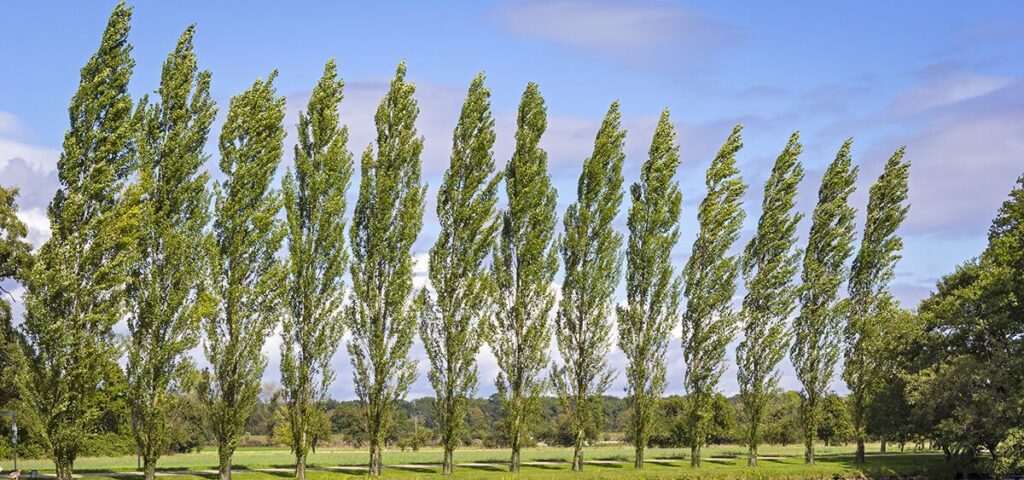There is an abundance of 40-60 year old poplar plantations throughout the British lowlands as a result of the Wilkinsons Match Company (previously Bryant & May, Wilkinson Sword and British Match Corporation) encouraging landowners to plant poplars for veneer peeled log production for the UK match and basket making industries. An important inducement to farmers was the assurance that all acceptable veneer quality timber would be purchased. By the 1960’s, private planting reached a peak of about 400 ha annually, but by then basket manufacture had turned from natural fibre to plastics and consumption of matches was in steady decline. Wilkinson Match therefore decided to reverse the earlier intention to rely on home-grown poplar for the supply of match veneer. By this time some 4044ha had been privately planted, the Forestry Commission’s own plantations extended to nearly 1000ha and the poplar veneer Industry itself had 1500 ha of poplar plantations. With the loss of the one market for which nearly all planting had been intended, interest in poplars plummeted and many of these plantations are therefore left standing today.
Up until very recently, these trees were considered a liability rather than an asset as they had little or no commercial value but continued to get bigger and more likely to fall or collapse. In the last few years however, poplar timber demand has grown due to biomass / energy markets developing and export markets opening up. Currently, we are seeing remarkably good prices for better quality logs going for export, and all other poplar wood is demanding a reasonable price for chip. On suitable sites, even the branch wood is now being lifted and taken away as chip for bioenergy. This last product doesn’t command a high price but can significantly reduce ground preparation costs for the following plantation.
In the past 18 months we have assisted clients in felling and restocking their poplar sites to create longer-term and more biodiverse native broadleaf and conifer woodlands. Key factors for success are accessibility, space for processing operations and enough volume of reasonable quality trees.
Whilst your poplars will never be worth a fortune, recent projects that we have managed have come in around cost neutral and several made a slight return, even after restocking.
FINDING OUT MORE
To discuss your requirements, get in touch directly on 01480 890686 or by emailing info@smv.yvf.mybluehost.me.

